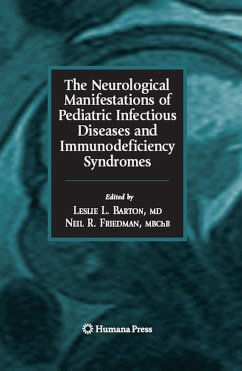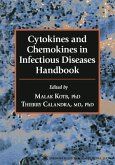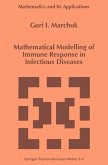Comprehensive yet concise, The Neurological Manifestations of Pediatric Infectious Diseases and Immunodeficiency Syndromes is an ideal guide for pediatricians, primary care physicians and subspecialists to the complex relationships between infectious diseases, immunodeficiency syndromes and the neurological process.
Dieser Download kann aus rechtlichen Gründen nur mit Rechnungsadresse in A, B, BG, CY, CZ, D, DK, EW, E, FIN, F, GR, HR, H, IRL, I, LT, L, LR, M, NL, PL, P, R, S, SLO, SK ausgeliefert werden.
"This book addresses the neurologic emergencies of pediatric infections and immunodeficiencies in a logical, consistent fashion. ... It is written for physicians in training, primary care physicians, and subspecialists. Anyone treating or aspiring to treat ill children will profit this book. ... The consistent chapter organization is helpful. There is no comparable book and this one is welcome and useful. Neurologists will be better educated about infection ... . As a neurologist, I will open this book frequently." (John Willis, Doody's Review Service, September, 2008)
"The Neurological Manifestations of Pediatric Infectious Diseases and Immunodeficiency Syndromes is a carefully devised text with extensive coverage of topic. ... This book is written for physicians in training, primary health care physicians, subspecialists. ... The chapters are interesting to read. ... I would encourage any clinician who is actively involved in the treatment of children with neuroinfections to acquire this text as an essential part of their library." (Jo M. Wilmshurst, Clinical Infectious Diseases, Vol. 49 (1), January, 2009)









